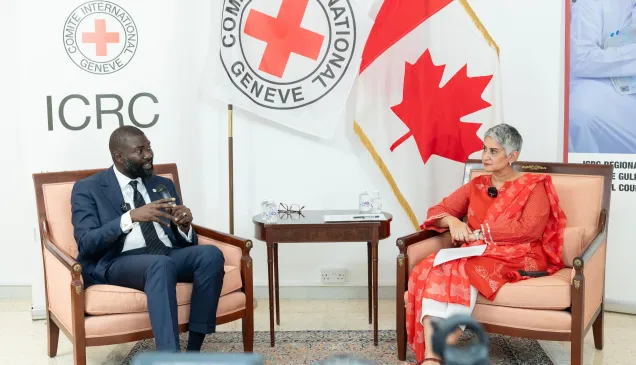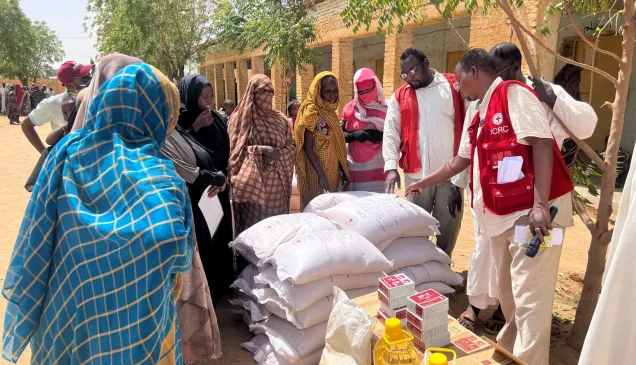The ICRC is therefore deeply concerned that IHL treaties may be seen as instruments adopted in times of peace and stability but abandoned when confronted with an elevated security threat or the outbreak of an armed conflict. This notion is fundamentally at odds with the entire concept of international humanitarian law.
Yet we see signs of exactly such movement. The Parliament of Lithuania has voted to withdraw from the Convention on Cluster Munitions, setting a historic and concerning precedent extending beyond the Convention itself.
Maintaining and strengthening international humanitarian law is a collective responsibility of all states. This is why, despite constantly changing security circumstances and numerous armed conflicts worldwide, no state has ever withdrawn from any of the five multilateral treaties that comprehensively prohibit an entire class of weapon and that were driven by humanitarian concerns (the Convention on Cluster Munitions, the Anti-Personnel Mine Ban Convention, the Biological Weapons Convention, the Chemical Weapons Convention and the Treaty on the Prohibition of Nuclear Weapons).
Under the respective treaties, tens of thousands of tons of chemical weapons agent and hundreds of millions of anti-personnel landmines and cluster munitions have been eliminated. These treaties have prevented a repeat of the horrors of gas warfare of the First World War, and have protected hundreds of thousands of civilians from the indiscriminate harm caused by anti-personnel landmines and cluster munitions. The treaties reduce suffering, protect civilians, and mitigate the worst effects of war. They have been built on the bitter and horrifying experience of two world wars; an experience the international community has been determined never to repeat.
“International Humanitarian Law is not made for the hopeful days of peacetime. It is made for humanity’s darkest days, when armed conflict rages and people are in grave danger. It is essential that states do not take the route of pulling away from the treaties and conventions—like the Geneva Conventions which turn 75 years old this year – that keep vulnerable people safe and mitigate the horrors of war,” says ICRC president Mirjana Spoljaric.
The ICRC therefore appeals to all states:
- To refrain from withdrawing from any IHL treaty, and to immediately suspend any withdrawal process that may be underway.
- To publicly reaffirm the value and importance of IHL and to discourage any actions by states that would undermine or weaken it.
- To raise public awareness of the role and function of IHL in armed conflict, and foster public understanding of the risks of any erosion of IHL.
About the ICRC
The International Committee of the Red Cross (ICRC) is a neutral, impartial and independent organization with an exclusively humanitarian mandate that stems from the Geneva Conventions of 1949. It helps people around the world affected by armed conflict and other violence, doing everything it can to protect their lives and dignity and to relieve their suffering, often alongside its Red Cross and Red Crescent partners.
For more information, please contact:
Crystal Ashley WELLS, ICRC Geneva, tel: +41 79 642 80 56, email: cwells@icrc.org
Christoph HANGER, ICRC Geneva, tel: +41 79 731 04 03, email: changer@icrc.org




